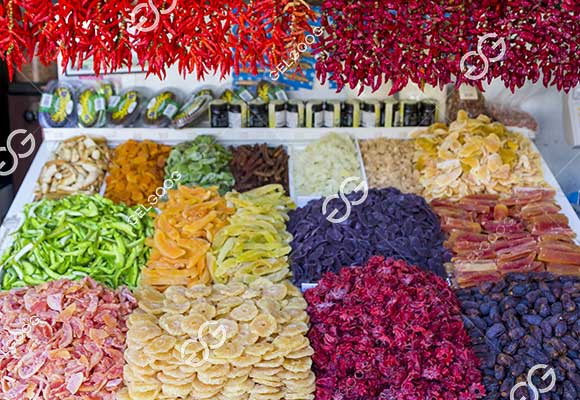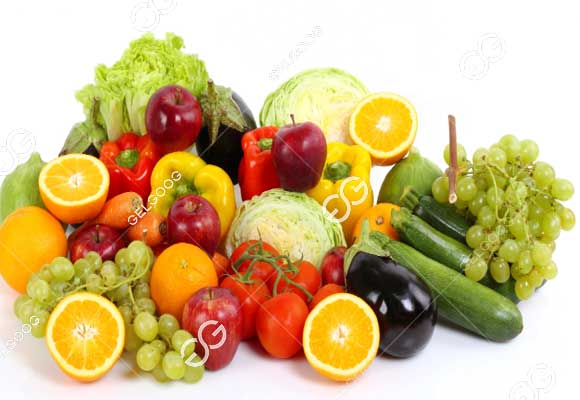Individual quick freezing of fruits and vegetables is an efficient and precise industrial-grade freezing technology that is very popular in the fruit and vegetable processing industry.
This article will deeply analyze the core principles, application scenarios and equipment selection strategies of IQF technology, and provide decision-making basis for technology upgrades for factories and enterprises.

What Is Individual Quick Freezing Technology?
Individual quick freezing (IQF) is a process of quickly freezing fruits and vegetables through extremely low temperature (-30℃ to -40℃) airflow. Unlike traditional freezing methods, IQF technology ensures that each piece of fruit and vegetable is frozen independently to avoid adhesion and retain its shape, nutrition and taste to the greatest extent.
Core Process:
- Pretreatment: After washing and cutting, fruits and vegetables are evenly laid on the conveyor belt.
- Quick freezing stage: High-speed cold air penetrates the product, completing ice crystal formation within 5-15 minutes, reducing cell damage.
- Packaging and storage: Frozen fruits and vegetables can directly enter the automated packaging line for long-term storage or transportation.
For industrial production lines, IQF equipment usually integrates efficient refrigeration systems, intelligent temperature control modules and continuous transmission designs to support large-scale processing capabilities of several tons per hour.

Industrial-Grade Advantages of IQF Technology
Quality assurance: Rapid freezing inhibits enzyme activity and microbial growth, retaining more than 90% of the vitamins and color of fruits and vegetables.
- Reduce losses: Independent freezing avoids agglomeration and reduces the breakage rate during sorting and thawing.
- Continuous production: Industrial-grade IQF equipment supports 24-hour operation, matching the assembly line requirements of large factories.
- Energy-saving design: Advanced air circulation system can reduce energy consumption by more than 30%, meeting green production standards.
Meet the needs of high-end customers for "ready-to-use" frozen fruits and vegetables, such as juice manufacturers, pre-prepared food processing plants, etc.
Extend the shelf life of products to 12-24 months and support long-distance export trade.

Application Scenarios of Industrial-Grade IQF Equipment
- High value-added fruit and vegetable processing: such as export-grade processing of fragile fruits such as blueberries, strawberries, and mango cubes.
- Supply of prepared food ingredients: Provide catering chains with wash-free, ready-to-use frozen vegetable ingredients.
- Functional food production: Frozen spinach, carrots, etc. that retain nutrients can be used in healthy food manufacturing.
- Key considerations for purchasing industrial-grade IQF equipment
- Processing capacity: Select equipment specifications based on production capacity requirements and confirm equipment compatibility (such as switching production between berries and root vegetables).
- Technical parameters: Refrigerant type (environmentally friendly refrigerants such as ammonia or carbon dioxide), temperature uniformity (error within ±2°C to ensure freezing consistency).
- Long-term operating costs: Modular design equipment is preferred for easy maintenance and upgrading.

For fruit and vegetable processing companies, individual quick freezing (IQF) technology is not only a means of preservation, but also a strategic tool to enhance product premium capabilities and open up global markets.
Contact us now to obtain customized IQF equipment solutions and industry success cases, and open up a new era of efficient and sustainable frozen production!





